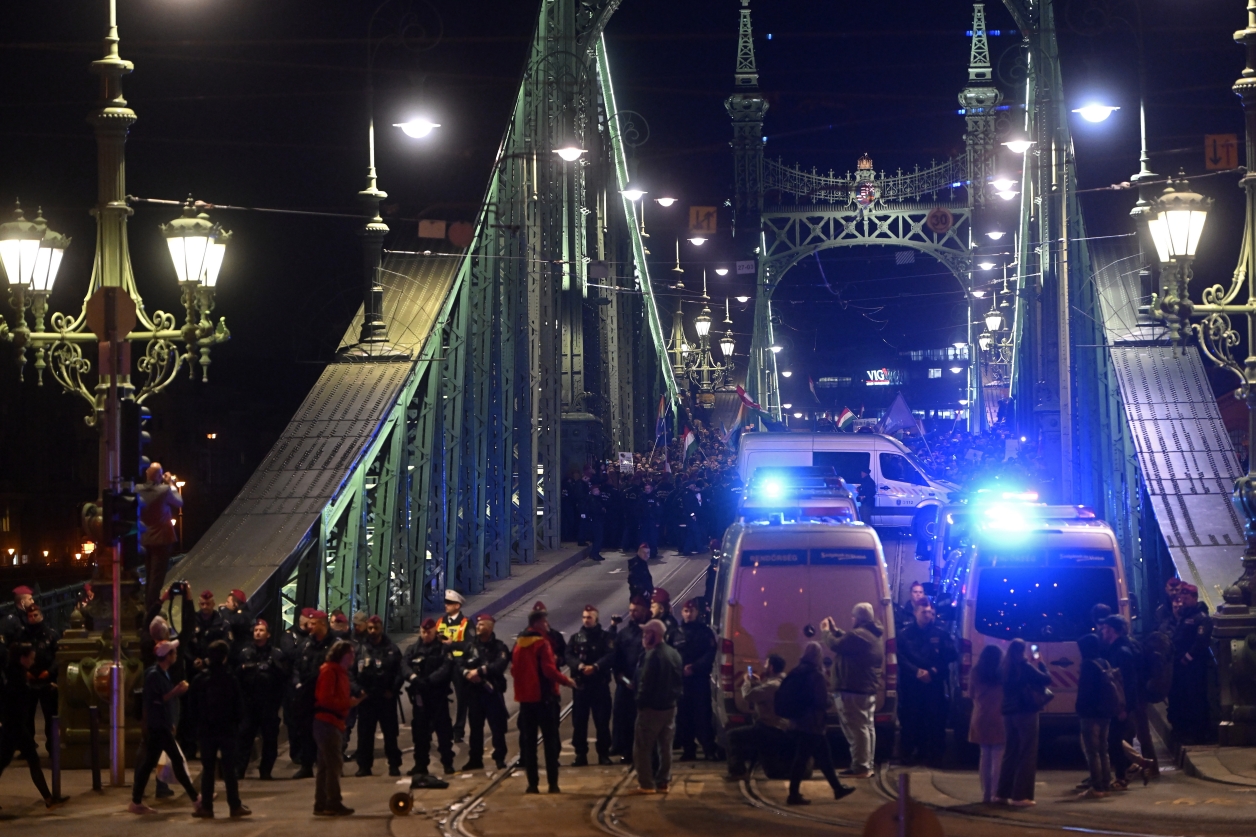
The German MEP known for his hateful remarks against Hungary's constitutional representatives was also stoking the fire.Continue reading

The embassies of 21 European countries plus the Australian consulate have issued a joint statement condemning the amendment to the child-protection legislation that in their interpretation is aimed at preventing the annual Pride march from taking place.
Despite the fact that the astonishing interference in Hungarian internal affairs has now become an annual phenomenon, this year’s statement has incidentally managed to shed light on the isolation of EU member-states lead by left-wing governments, rather than the Hungarian government’s alleged human rights violations, as originally intended.
The petitions states that – “We, the undersigned embassies, express our deep concern about the law adopted in Hungary on 18 March 2025, which results in restrictions on the right of peaceful assembly and freedom of expression. We are committed to respecting, protecting and fulfilling all human rights and fundamental freedoms regardless of sexual orientation, gender identity and gender characteristics, and to combating discrimination on these grounds.”
Joint statement on the Hungarian legislation restricting the right of peaceful assembly and the freedom of expression pic.twitter.com/EaQ32MUfIi
— Julia Gross (@GERinHUN) March 27, 2025
This year, the following embassies have signed the protest: Australia (consulate only), Austria, Belgium, Czech Republic, Denmark, Estonia, Finland, France, Germany, Iceland, Ireland, Latvia, Lithuania, Luxembourg, the Netherlands, Norway, Poland, Slovenia, Spain, Sweden, Switzerland, United Kingdom.
The pro-LGBTQ statement signed by diplomatic missions in Hungary though shows a descending trend: in 2021 the document was signed by as many as 42 embassies and cultural institutions, while in 2023 it only had 38 signatories.
This year’s petition though is a new low in the number of those still willing to join the gender lobby’s initiative: there were only 22 signatures, which is almost half of that from 2021.
The most notable part of this year’s LGBTQ petition is not so much what it states and how many have signed it but whose signature is missing from the annual document. Despite the fact that former Joe Biden-appointed U.S. Ambassador David Pressman has always signed the petition condemning Hungary’s alleged violations of LGBTQ right, this year the signature of the newly appointed U.S. Chargé d’Affaires, Robert Palladino, is missing. Not only that, just days after the petition’s publication, Mr. Palladino was the keynote speaker at the Danube Institute’s conference -“Family Formation and the Future”.
In his social media post Mr. Palladino thanked the Danube Institute for the invitation and for their dedication to help children flourish, as well as for “strengthening marriage and family.” He also wrote that “President Trump and his team understand that
a strong family forms the essential foundation of a stable and prosperous nation.”
This public statement is a clear and unmistakable sign of the fact that the new American administration is taking a fundamentally different stance on LGBTQ issues than the previous one did. Marriage, children, family, nation – the American diplomat is sending not only a strong message of support to the Hungarian government, but implicitly also an alternative one to the activist diplomatic core in Hungary.
The Vienna Convention on Diplomatic Relations (1961) explicitly mentions that diplomats must not interfere in the internal affairs of the receiving state. The article also underscores that all official business should be conducted through the Ministry of Foreign Affairs or other designated authorities, thereby reinforcing the non-interference principle.
As a sign of the Hungarian government’s clear expectation towards diplomats to maintain proper decorum, one of the signatories of the petition, German Ambassador Julia Gross, has been summoned to the foreign ministry in Budapest last year for “interfering with Hungary’s internal affairs”. No doubt with a blessing from the far-left Greens who have lead the Germany Ministry of Foreign Affairs until recently, the German Embassy in Budapest has been one of the regular supporters of the petition despite the fact that there are virtually no attacks against the gay community in Hungary.
As we have pointed out in our earlier article, the number of attacks against the gay community in Germany is on the rise: in 2022 there were as many as 3 incidents a day in the country. While the mainstream press in Germany likes to identify the political right as the greatest threat to sexual minorities, statistics show that these attacks are clearly related to the German government’s failed immigration policies. A non-representative survey in a gay dating app showed that the most popular party among gays and lesbians is the national-conservative party, Alternative for Germany (AfD), which is perhaps best known for its tough stance on illegal immigration.
Featured Image: Pixabay